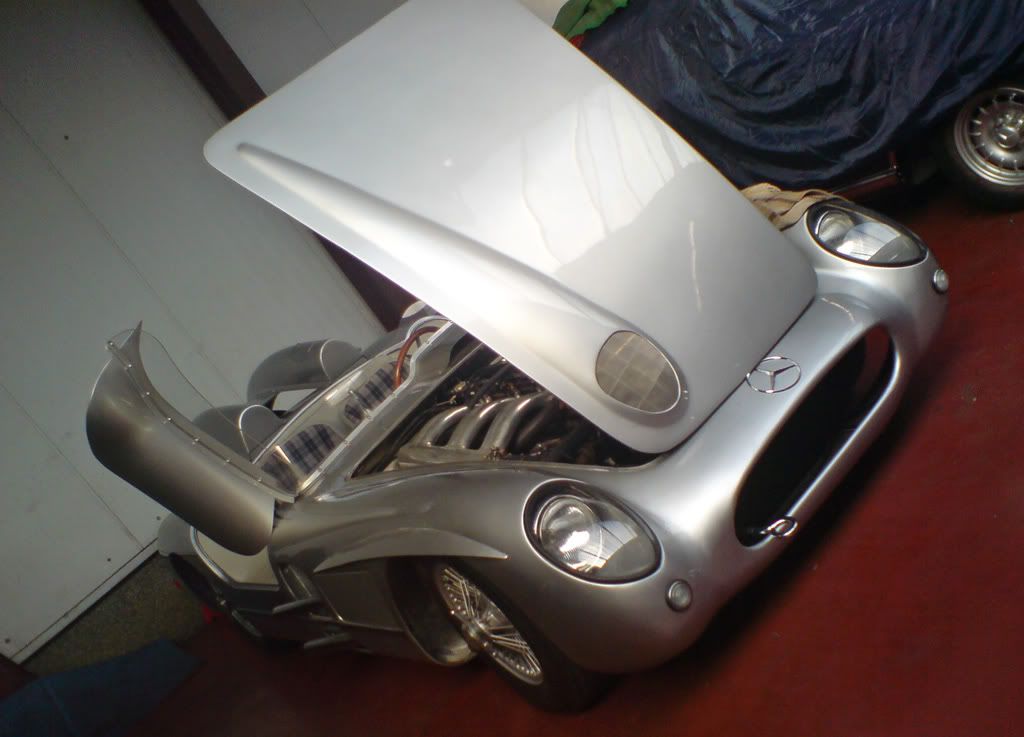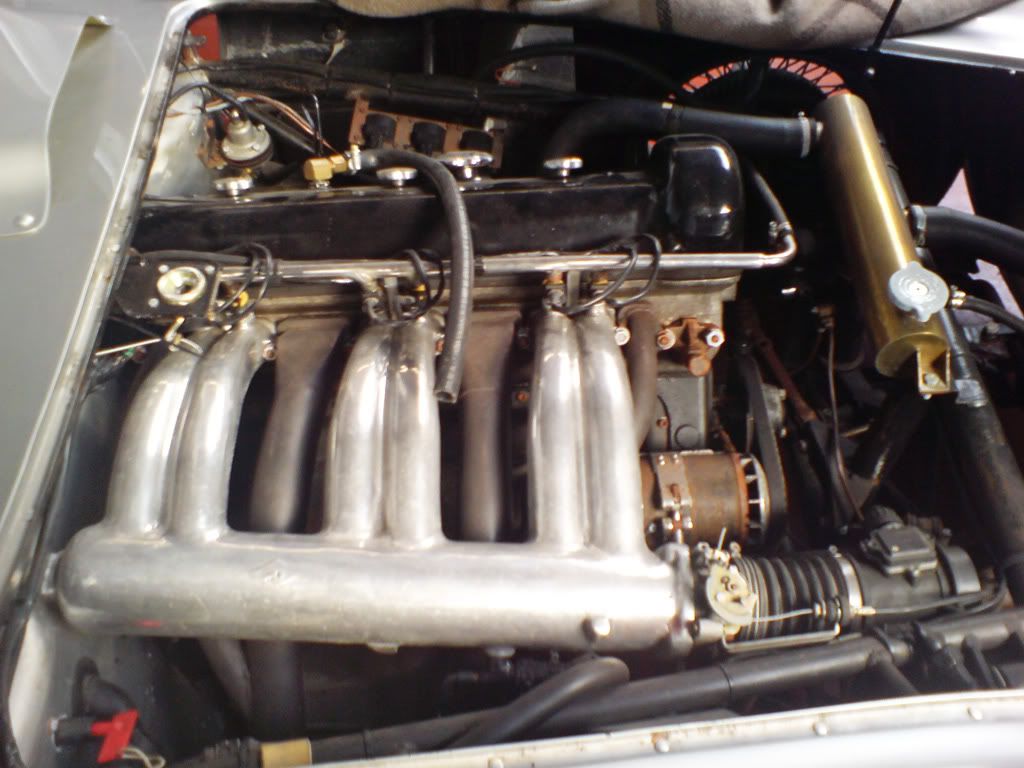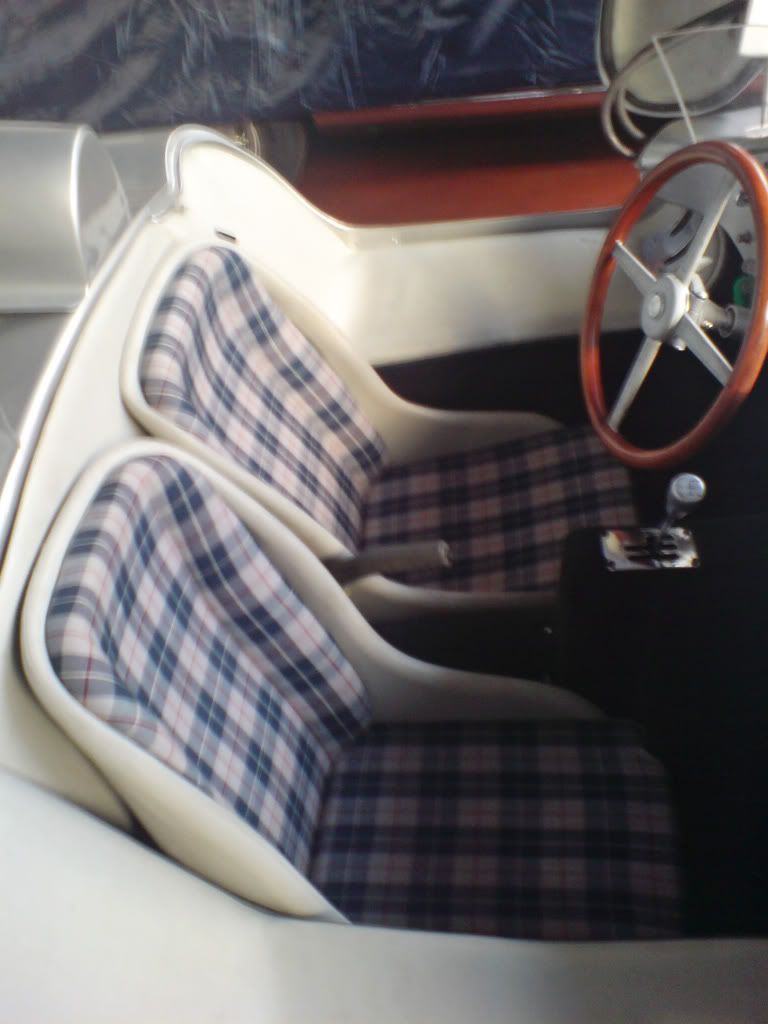Oorspronkelijk geplaatst door CAS
Bekijk Berichten
Mededeling
Collapse
No announcement yet.
MERCEDES-BENZ Lovers
Collapse
This topic is closed.
X
X
-
Jup. M20B27 blok.Oorspronkelijk geplaatst door Stefaan van deynze Bekijk Berichtengaat het hier over een BMW motor ?
Comment
-
ok, ben ik totaal nie mee vertrouwd, den enigen BMW waar ik iets van ken is mijne K100Oorspronkelijk geplaatst door CAS Bekijk BerichtenJup. M20B27 blok.
Comment
-
Als in, afvlakken/zandstralen gaat niet en krukas balanceren zeker niet?Oorspronkelijk geplaatst door Stefaan van deynze Bekijk Berichtenok, ben ik totaal nie mee vertrouwd, den enigen BMW waar ik iets van ken is mijne K100
Comment
-
culas vlakken en stralen is geen probleem hoorOorspronkelijk geplaatst door CAS Bekijk BerichtenAls in, afvlakken/zandstralen gaat niet en krukas balanceren zeker niet?
Comment
-
Das het belangrijksteOorspronkelijk geplaatst door Stefaan van deynze Bekijk Berichtenculas vlakken en stralen is geen probleem hoor Van zodra ik mijn rijbewijs weer heb bel ik eens om eventueel af te spreken.
Van zodra ik mijn rijbewijs weer heb bel ik eens om eventueel af te spreken.
Comment
-
carlippo en anderen; waarop moet je letten om een 300 SLR replica van een echte te onderscheiden?
Er stond er eentje bij m'n garagist, maar ik heb moeite te geloven dat het een echte is, hoewel daar wel vaker unicum's staan...
Er zijn zo al 2 zaken die me opvallen:
-als ik vergelijk met deze:

is de voorruit anders. Ie loopt verder over de deuren
-er ligt geen 8-in-lijn, maar een 6-in-lijn onder de kap. Voor zover ik kan zien eentje die zeer goed overeenkomt met die uit de W198.
Comment
-
Trouwens, die 8-in-lijn was geen normale motor.
Ahja, wel een normale motor, maar op zo een manier gebouwd dat hij toen vooruitstrevend was.
Despite a misleading name, the Mercedes-Benz 300SLR was based neither on the famous 1954 300SL road car, nor the earlier 1952 race car, although it bears a strong resemblance to both (including, in the coupe version, the distinctive 'gullwing doors'). Instead, it was based on the 1954-1955 Formula 1 Mercedes-Benz W196 race car; it was Mercedes' marketing department, who found 'W196S' an uninspiring name, who ordered the name '300SLR'. It is generally accepted that this name references the car's lightweight construction as 'Sport Leicht Rennen'.[citation needed]
The car was of a front-mid-engined design (where the engine block is squarely behind the front axles), to give more neutral front/rear weight distribution. It used a spaceframe chassis and magnesium-alloy (Elektron) bodywork, which has a specific gravity of just 1.8 (for reference, the S.G. of iron is 7. , both of which contributed to a dry weight of just 880kg. The preceding Formula 1 car's 8 cylinders in-line engine was used, increased in capacity from 2,496.87 cc (76.0 x 68.8 mm) to 2,981.70 cc (78.0 x 78.0 mm). This boosted output from 290 bhp at 8,500 rpm to about 310 horsepower at 7,400 rpm, depending on the intake manifold; maximum torque of 234 lb.-ft. came at 5,950 rpm (193.9 psi bmep), providing strong pulling power. The engine was longitudinally mounted, and was canted over at a 33-degree angle to lower its profile for aerodynamic reasons, resulting in the distinctive bonnet bulge on the passenger side of the car. The engine was also unusual in that it used desmodromic valve actuation instead of springs. Fuel injection was still a novelty then. The engine protruded some way back into cockpit, forcing the monoposto version drivers to straddle the driveshaft and clutch bellhousing with his feet to reach the pedals. To reduce crank flexing, power takeoff from the engine was at the center of the engine, via a gear, rather than at the end of the crankshaft. This was not the only oddity of the drivetrain - the car was fitted with vast inboard drum brakes which dwarfed the car's 16"-wheels; the unusual shaft-linked brakes were originally to have been part of a planned[citation needed] four-wheel-drive system which never came to fruition. The rear independent suspension used a low roll centre swing axle system, where a beam attached to each hub was mounted on the opposite side of the chassis. Thus, the beams were aligned slightly differently and crossed over in the centre line. Cornering forces did not jack the car up, as occurs with short swing axles.
, both of which contributed to a dry weight of just 880kg. The preceding Formula 1 car's 8 cylinders in-line engine was used, increased in capacity from 2,496.87 cc (76.0 x 68.8 mm) to 2,981.70 cc (78.0 x 78.0 mm). This boosted output from 290 bhp at 8,500 rpm to about 310 horsepower at 7,400 rpm, depending on the intake manifold; maximum torque of 234 lb.-ft. came at 5,950 rpm (193.9 psi bmep), providing strong pulling power. The engine was longitudinally mounted, and was canted over at a 33-degree angle to lower its profile for aerodynamic reasons, resulting in the distinctive bonnet bulge on the passenger side of the car. The engine was also unusual in that it used desmodromic valve actuation instead of springs. Fuel injection was still a novelty then. The engine protruded some way back into cockpit, forcing the monoposto version drivers to straddle the driveshaft and clutch bellhousing with his feet to reach the pedals. To reduce crank flexing, power takeoff from the engine was at the center of the engine, via a gear, rather than at the end of the crankshaft. This was not the only oddity of the drivetrain - the car was fitted with vast inboard drum brakes which dwarfed the car's 16"-wheels; the unusual shaft-linked brakes were originally to have been part of a planned[citation needed] four-wheel-drive system which never came to fruition. The rear independent suspension used a low roll centre swing axle system, where a beam attached to each hub was mounted on the opposite side of the chassis. Thus, the beams were aligned slightly differently and crossed over in the centre line. Cornering forces did not jack the car up, as occurs with short swing axles.
The car's fuel itself was also odd - a high-octane fuel mixture of 65 percent low-lead gasoline and 35 percent benzene; in some races, alcohol was also used to further increase performance. As a rule, the car left the starting line with 44 gallons of fuel and more than nine gallons of oil on board, although Moss and Jenkinson began their assault on the 1955 Mille Miglia with as much as 70 gallons of fuel in the tank[1].
At Le Mans in 1955, the 300 SLRs were also equipped with "air brakes" similar in principle to those used on aircraft - this was a large hood that hinged up behind the occupants in order to slow down the cars at the end of the fast straights. The idea for this "wind brake" came from director of motorsports Alfred Neubauer, who was looking to develop a system to reduce the wear on the huge drum brakes and tires during long-distance races such as Le Mans and Reims. Neubauer foresaw wind resistance slow the car especially at Le Mans, as the French track's layout forced drivers to use the brakes hard and often to bring the car down from its maximum speed - around 180mph - to as little as 25mph[2]. In tests the 7.5ft² light-alloy spoiler slowed the car dramatically and improved cornering. In addition, this innovation was required as the car's traditional drum brakes were inferior to the new disc brakes of main rival Jaguar.
The SLR also had two seats, as required for sports racing cars of the day. In some racing events a co-driver, mechanic or navigator was given a ride. In the 300SLR's short career, this was only the Mille Miglia, as the 1955 Carrera Panamericana was cancelled due to the Le Mans accident. On short circuits (this includes the Targa Florio) passengers were not helpful, thus the passenger seat was covered and the passenger windshield removed to improve aerodynamics.
Nine W196S chassis were built.
Comment
-
hewel, sinds begin dit jaar rijdt ik ook met een ml 280 en 'k was er in 't begin nie zot van dus reed ik meer met m'n w126, maar na een tijdje leer je de wagen waarderen en 'k moet zeggen da rijdt heel goe, alhoewel ik m'n w126 voor geen geld ter wereld zou willen missenOorspronkelijk geplaatst door bobo Bekijk Berichtenmijn zus heeft haar ml270 voor mooie condities kunnen overegeven aan de garage in ruil voor een nieuwe kwasi (zonder de excessen) full-option ml 280
Comment
-
als ik m'n kabel voor m'n GSM vind zal ik een paar foto's posten...Oorspronkelijk geplaatst door Carlito Bekijk BerichtenDan is het een fake.
Een echte 300SLR heeft een 8-in-lijn.
Comment
-
MMS ff door, ik heb mijn kabel nogOorspronkelijk geplaatst door Fiddy Bekijk Berichtenals ik m'n kabel voor m'n GSM vind zal ik een paar foto's posten...
Comment
-
MMS werkt niet en kabel vind ik niet, sorryOorspronkelijk geplaatst door Carlito Bekijk BerichtenMMS ff door, ik heb mijn kabel nog

Comment
-
zonde en schitterend tegelijk!Oorspronkelijk geplaatst door Carlito Bekijk BerichtenOmgebouwde 300SL (denk coupe)
is zoiets (relatief gezien tov. een originele 300SL) nog iets waard, gezien z'n ombouw?
Comment
-
Ligt eraan.
Als dat echt waarheidsgetrouw en met goede materialen gebeurd is, zal de prijs ongeveer hetzelfde zijn.
Maar gezien de ruitjes op de deuren van deze twijfel ik daar al aan.
Er is zo een duitser die alles tot op het kleinste detail nagebouwd heeft (op de motor na). Volledige auto handgeslagen uit alu-plaat enzo, en dat rond het 300SL-chassis gebouwd. Die kerel zijn kar is echt veel meer waard omdat dat zo goed gedaan is. Er is altijd een zot die het er dan voor geeft.
Comment




Comment